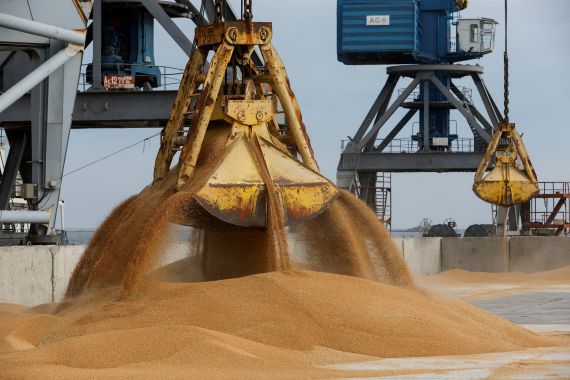Russia has initiated the dispatch of 200,000 tonnes of free grain to six African nations, fulfilling a commitment made by President Vladimir Putin. This humanitarian effort comes months after Russia withdrew from the UN-brokered Black Sea grain deal, intensifying concerns about the global supply chain and humanitarian aid. Dmitry Patrushev, Russia’s agriculture minister, confirmed the commencement of shipments, with vessels already en route to Burkina Faso and Somalia, and additional deliveries scheduled for Eritrea, Zimbabwe, Mali, and the Central African Republic.
Putin’s Promise Materializes
Amidst the diplomatic fallout from the termination of the Black Sea grain initiative, President Putin’s promise to provide free grain to the aforementioned African countries takes shape. The commitment was made during a summit with African leaders in July, signaling Russia’s determination to sustain its humanitarian efforts despite the withdrawal from the UN-brokered agreement. The move not only fulfills a pledge but also underscores Moscow’s commitment to alleviating food shortages in the face of global uncertainties.
UN’s Cautionary Note on Humanitarian Impact
UN Secretary-General Antonio Guterres cautioned against underestimating the magnitude of the humanitarian crisis resulting from the termination of the Black Sea grain deal. He emphasized that the “handful of donations” from Russia, though appreciated, would not adequately address the severe consequences triggered by the collapse of the agreement. The Black Sea grain initiative, aimed at bolstering world markets with essential commodities, faced a setback when Russia withdrew, leading to concerns about a potential surge in famine and the critical need for alternative solutions.
Ukraine’s Response and the Emergence of a New Corridor
In response to the void left by the collapse of the Black Sea deal, Ukraine implemented a strategic “humanitarian corridor” along the western Black Sea coast near Romania and Bulgaria. The corridor, established in August, has already witnessed substantial traffic, with approximately 151 ships utilizing the alternative route. Yuriy Vaskov, Deputy Minister for Renovation and Infrastructure, revealed that over 4.4 million metric tonnes of cargo, including 3.2 million tonnes of grain, have been transported through the corridor. As Ukraine adapts to the changing geopolitical landscape, maintaining the flow of grain exports remains crucial for its recovering economy, expected to grow by about 5 percent this year.
















